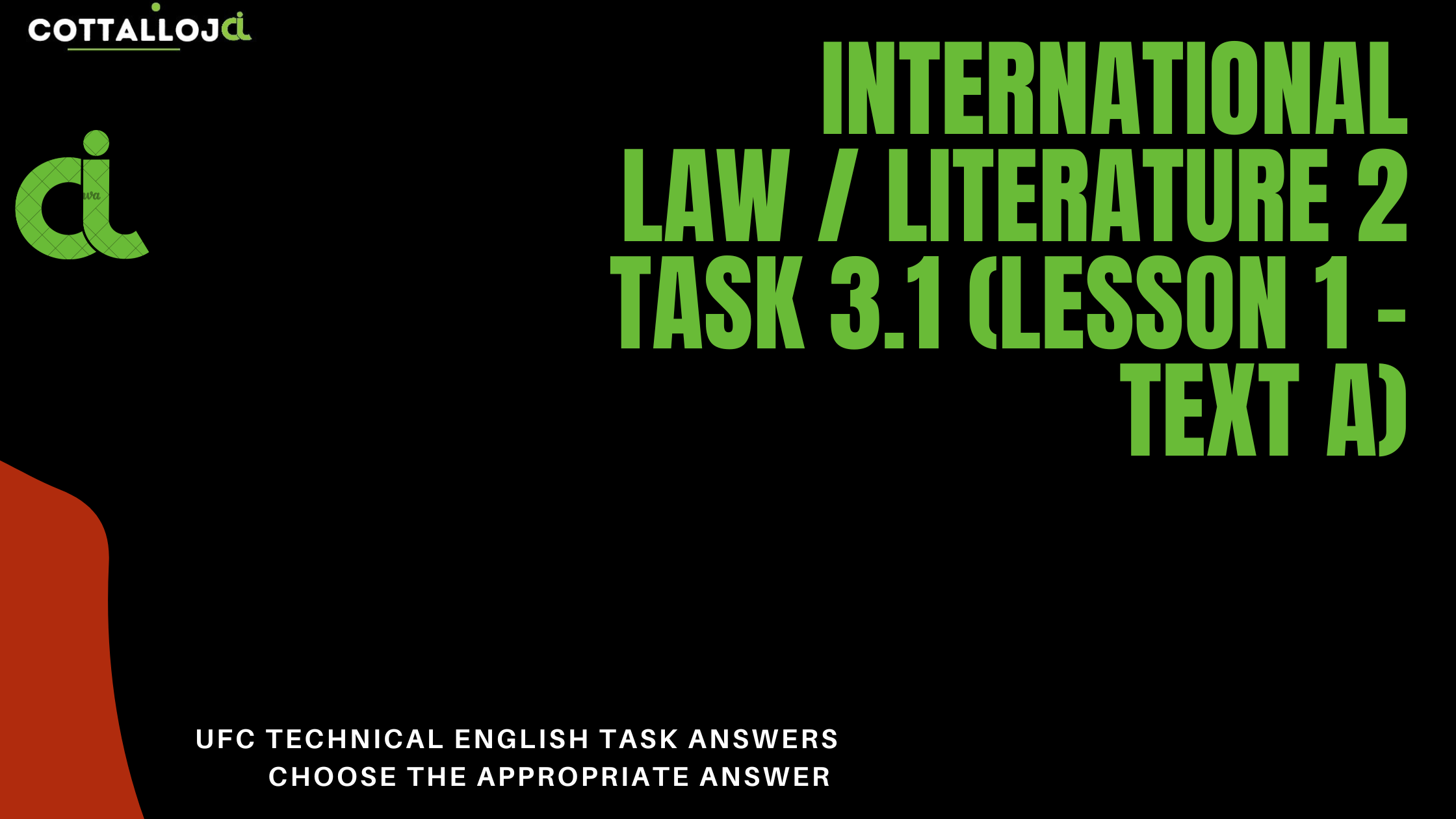Answer each of the following statements based on the text international law
Context
Question 5:
Question 5: International law is an independent system of law existing outside the legal orders of:
a.c) International organizations
b. a) Municipal law
c. b) United Nations
d.d) Particular states
-The UN General Assembly has the power to issue binding laws.
Vrai
Faux
Who coined the term "international law"?
a.b) United Nations
b. d) English philosopher
c.a) Jeremy Bentham
d.c) International Court of Justice
-There is a comprehensive system of law enforcement in international law.
Vrai
Faux
International law provides normative guidelines to primarily:
a. d) Municipal law
b.b) Individuals
c. c) Sovereign states
d.a) International organizations
According to Bentham's definition, international law governs relations between:
a. b) Sovereign states only
b.a) Individuals and international organizations
c. d) War, peace, and diplomacy
d. c) International actors and private entities
The ICJ's jurisdiction in contentious cases is founded upon the consent of the particular states involved.
Vrai
Faux
How are the forces involved in UN military actions assembled?
a. c) They are assembled from private military contractors
b. b) They are assembled from a standing UN military force
c.d) They are assembled from the host country's military
d.a) They are assembled from member states on an ad hoc basis
International comity refers to legally nonbinding practices adopted by states for reasons of:
a.b) Courtesy
b. a) War and peace
c.d) International trade
d.c) Human rights
The UN Security Council can authorize the use of force to compel states to comply with its decisions in any circumstance.
Vrai
Faux
What may happen to a state that consistently violates international rules?
a.a) It may face military intervention
b.d) It may receive economic sanctions
c. c) It may suffer a decline in credibility and harm its future relations
d.b) It may be expelled from the United Nations
Who are the five permanent members of the UN Security Council?
a.b) China, France, Germany, the United Kingdom, and the United States
b.a) China, France, Russia, the United Kingdom, and the United States
c.c) China, France, Russia, Japan, and the United States
d.d) China, France, Russia, the United Kingdom, and Australia
How are international rules and principles generally enforced?
a. b) Through economic sanctions
b.a) Through military means
c. d) Through international organizations
d.c) Through reciprocity and enlightened self-interest
Answer
Based on the document "International Law," here are the answers to your questions:
- International law is an independent system of law existing outside the legal orders of particular states (d).
- The UN General Assembly does not have the power to issue binding laws. This statement is False.
- Jeremy Bentham, an English philosopher, coined the term "international law" (c).
- There is no comprehensive system of law enforcement in international law. This statement is True.
- International law provides normative guidelines primarily to sovereign states (c).
- According to Bentham's definition, international law governs relations between sovereign states (a).
- The ICJ's jurisdiction in contentious cases is founded upon the consent of the particular states involved. This statement is True.
- The forces involved in UN military actions are assembled from member states on an ad hoc basis (d).
- International comity refers to legally nonbinding practices adopted by states for reasons of courtesy (a).
- The UN Security Council can authorize the use of force to compel states to comply with its decisions, but only in specific and limited circumstances. This statement is False.
- A state that consistently violates international rules may suffer a decline in credibility and harm its future relations (c).
- The five permanent members of the UN Security Council are China, France, Russia, the United Kingdom, and the United States (b).
- International rules and principles are generally enforced through reciprocity and enlightened self-interest (d).
Arabic translation
Here are the translated answers to your questions in Arabic:
- القانون الدولي هو نظام قانوني مستقل يوجد خارج الأنظمة القانونية للدول الخاصة (د).
- لا يمتلك الجمعية العامة للأمم المتحدة السلطة لإصدار قوانين ملزمة. هذه العبارة خاطئة.
- جيريمي بنثام، الفيلسوف الإنجليزي، هو من صاغ مصطلح "القانون الدولي" (ج).
- لا يوجد نظام شامل لتنفيذ القانون في القانون الدولي. هذه العبارة صحيحة.
- يقدم القانون الدولي إرشادات توجيهية للدول السيادية بشكل أساسي (ج).
- وفقاً لتعريف بنثام، يحكم القانون الدولي العلاقات بين الدول السيادية (أ).
- اختصاص محكمة العدل الدولية في القضايا المتنازع عليها يعتمد على موافقة الدول الخاصة المعنية. هذه العبارة صحيحة.
- يتم تجميع القوات المشاركة في العمليات العسكرية للأمم المتحدة من الدول الأعضاء على أساس مؤقت (د).
- تشير اللياقة الدولية إلى الممارسات غير الملزمة قانونيًا التي تتبناها الدول لأسباب المجاملة (أ).
- يمكن لمجلس الأمن التابع للأمم المتحدة أن يأذن باستخدام القوة لإجبار الدول على الامتثال لقراراته، ولكن فقط في ظروف محددة ومحدودة. هذه العبارة خاطئة.
- قد تعاني الدولة التي تنتهك القواعد الدولية باستمرار من تراجع في مصداقيتها وتضرر علاقاتها المستقبلية (ج).
- الأعضاء الدائمون الخمسة في مجلس الأمن التابع للأمم المتحدة هم الصين وفرنسا وروسيا والمملكة المتحدة والولايات المتحدة (ب).
- عادةً ما يتم تنفيذ القواعد والمبادئ الدولية من خلال المعاملة بالمثل والمصلحة الذاتية المستنيرة (د).






